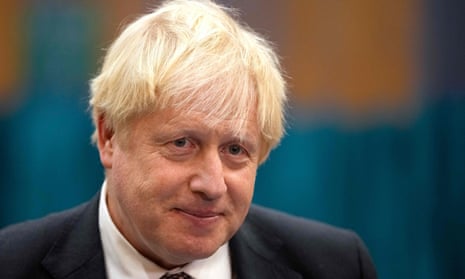For a plan that was supposedly devised by Boris Johnson, the government appears to have devoted significant resources toward showing its plan B for Covid this winter would have high costs and minimal effect.
No 10 has attempted to distance itself from this morning’s leaked Treasury documents, which have suggested that a return to home working would cause up to £18bn of damage to the UK economy over five months. It also notes that home working is likely to have only a moderate effect on transmission.
Johnson himself is known to be personally deeply opposed to remote working, suggesting people would be “gossiped about” if they do not return to the office. Yet the measure is a key plank of his plan B to deal with surging Covid cases – a plan many of his own scientific advisers say should now be put into action in the face of rising cases.
The document, first published by Politico, also suggests that vaccine passports for mass events would have minimal effects on transmission. Another document leaked on the same day to the Daily Telegraph also broaches the high costs of implementing Covid certificates. Threatened time and again but never actually implemented, Covid passes are fast becoming the equivalent of the Boy Who Cried Wolf in Westminster.
It rather raises the question of the convenience of both leaks – about the ineffectiveness of a plan that Johnson seems to have no intention of implementing. Daisy Cooper, the Liberal Democrats’ health spokesperson, accused the government of “trying to scupper their own plan B by leaking memos”.
The cost of home working – up to £18bn over five months mainly stemming from the cost to city centre businesses – does not appear to be set against the costs of intolerable pressure on the health service, or the cost of needing even tougher restrictions.
We may never need to find out how effective plan B would actually be. Despite the concerns of a wide range of scientists, case numbers have fallen for a fourth day and there is still hope that any further restrictions can be avoided.
But the well-timed leaks raise the question that if the government considers its plan B to be only moderately effective in suppressing cases, then what is the alternative if booster jabs fail to bring case numbers down and the NHS comes under unsustainable pressure? Plan C, though widely rumoured, is something ministers are still very unwilling to openly discuss.
